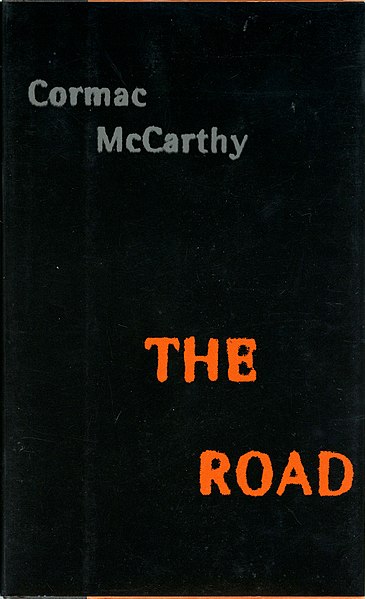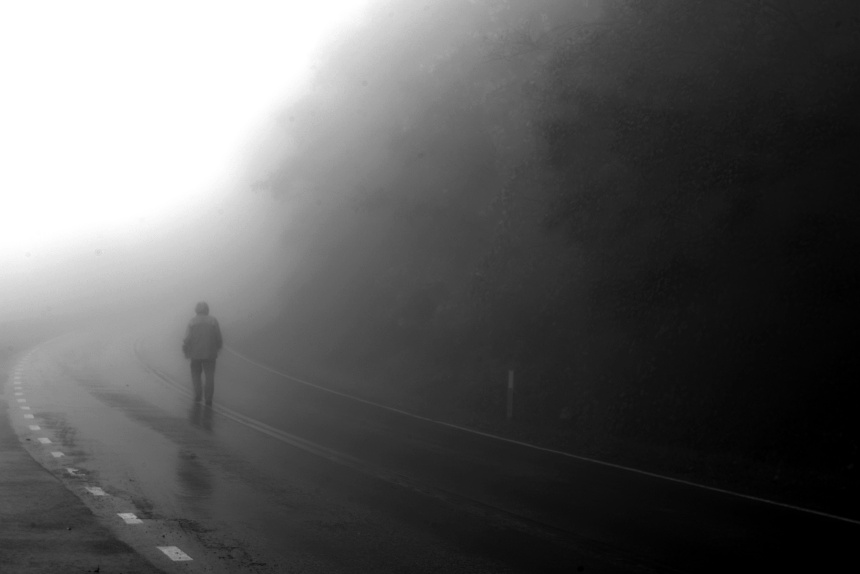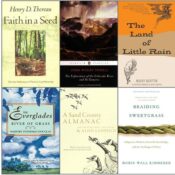This series by American studies professor Ben Railton explores the connections between America’s past and present.
Note: Usually I focus in this column on stories and themes from American history that echo our current moment’s challenges. But sometimes those present challenges are most fully connected to our shared future, and in this column I wanted to respond to the most pressing and overwhelming such challenge we’re facing, using a fictional vision of the future to help us imagine how we might move forward.
Earlier this week, the United Nations’ Intergovernmental Panel on Climate Change (IPCC) released its Sixth Assessment Report, the first since 2013, on the state and future of global climate change. UN Secretary-General António Guterres called the report “code red for humanity,” arguing that its dire assessments and predictions demand immediate action from all the world’s nat]ions if the worst-case future is to be staved off. That call has been echoed by climate scientists and political leaders from across the globe, all highlighting the report’s truly catastrophic details about where we are and where we’re headed.
I’ve written before in this space about the need for critical optimism. A corollary to my new book’s concept of critical patriotism, critical optimism is the idea that a genuinely optimistic perspective on the future requires first grappling with the hardest and darkest realities of the present. But what do we do if those realities seem so bleak that it feels impossible to imagine a better future? In Charles Chesnutt’s The Marrow of Tradition (1901), he says, “There’s time enough, but none to spare.” What do we do when it feels like there’s no longer time, that our opportunity to change things for the better has passed?
In moments like these, the search for critical optimism, for clear-eyed and genuine hope for the future, is a fraught and fragile quest. As with so many of our collective efforts, that search benefits from cultural models, voices, and works that can offer us stories of characters grappling with their own dark realities and fighting for their own hard-won hopes. To my mind, no 21st century American cultural work better exemplifies that battle than Cormac McCarthy’s 2006 dystopian novel The Road. Note that if you haven’t read the book, there are some spoilers ahead.

McCarthy’s novel envisions a post-apocalyptic America, one in which an unspecified event (perhaps a nuclear holocaust or the like) has destroyed all of human society and left behind a desolate wasteland populated mostly by roving bands of cannibals and criminals. His narrative follows a father and son, known only as “the man” and “the boy,” as they travel the titular road and try to survive in this blasted world. But the father, in whose perspective most of the novel is written and whose occasional flashbacks tell us what little we know of the apocalyptic event and its immediate aftermath, generally seems to believe that they are only marking time until the inevitable moment when he will have to take both of their lives, for which purpose he carries a revolver with only two remaining rounds. Which is to say, McCarthy has not only created a dark American future — he has created one in which there seems to be no future at all, no hope for anything other than a somewhat quick or painless demise.
In such a world, ideas of critical optimism — and corollaries such as shared, communal ideals and the stories that can pass them on — would seem laughably naïve and utterly useless in the face of the daily dark realities that confront these characters. Yet importantly, McCarthy’s novel makes precisely the opposite case. The father sees himself as having two remaining and vital roles to perform: keeping his son alive for as long as possible, fighting for this next generation with everything he has left; and passing on to his son a set of core stories, ideas, and beliefs, the values that can guide his life and identity.
Despite the father’s own internal doubts and fears, those beliefs are centrally defined by a more hopeful concept: that it is vital for people like them, those who are “still the good guys,” to “carry the fire,” to remember and retell and embody the stories of heroism and hope in the face of the world’s darkest realities. In the novel’s climactic moments, it is precisely the father’s belief in the fire and the stories that wins out over his fatalism: dying from an attack by one of the bad guys (a marauding thief), the father finds himself unable to shoot his son as he had always planned, despite his son pleading for him to do it so they can remain together. Instead, he tells his son that he has to go on, that now “you have to carry the fire. It’s inside you. It was always there. I can see it.” And he adds, crucially, that his voice and stories can and will remain inside his son as well: “If I’m not here you can still talk to me. You can talk to me and I’ll talk to you…And you’ll hear me. You have to practice. Just don’t give up.”
The boy is not sure he will be able to live up to these instructions, will be able to embody and carry forward his father’s final, hopeful vision for his future. But in the novel’s closing pages, after his father’s sacrifice has saved his life, the boy finds another family, a foursome whom he believes to be good guys who are also carrying the fire. He joins them on the road forward, and in the book’s concluding lines he promises his father’s memory that as part of that continued journey, “I’ll talk to you every day, and I won’t forget. No matter what.”
Critical optimism doesn’t mean a guarantee of a better future, necessarily. What it does mean is that we don’t give up, that the battle for our future, for ourselves but especially for the next generations, continues. And it does require that we remember the best of our stories and histories, our ideals and values, of the world for which we’re fighting. In the darkest of times, works like McCarthy’s novel can offer us roadmaps to such critical optimism, collective memories, and hard-won hope.
Featured image: Orhan Cam / Shutterstock
Become a Saturday Evening Post member and enjoy unlimited access. Subscribe now




Comments
Great piece! Critical optimism is what we and our planet need. Don’t give up the fight!